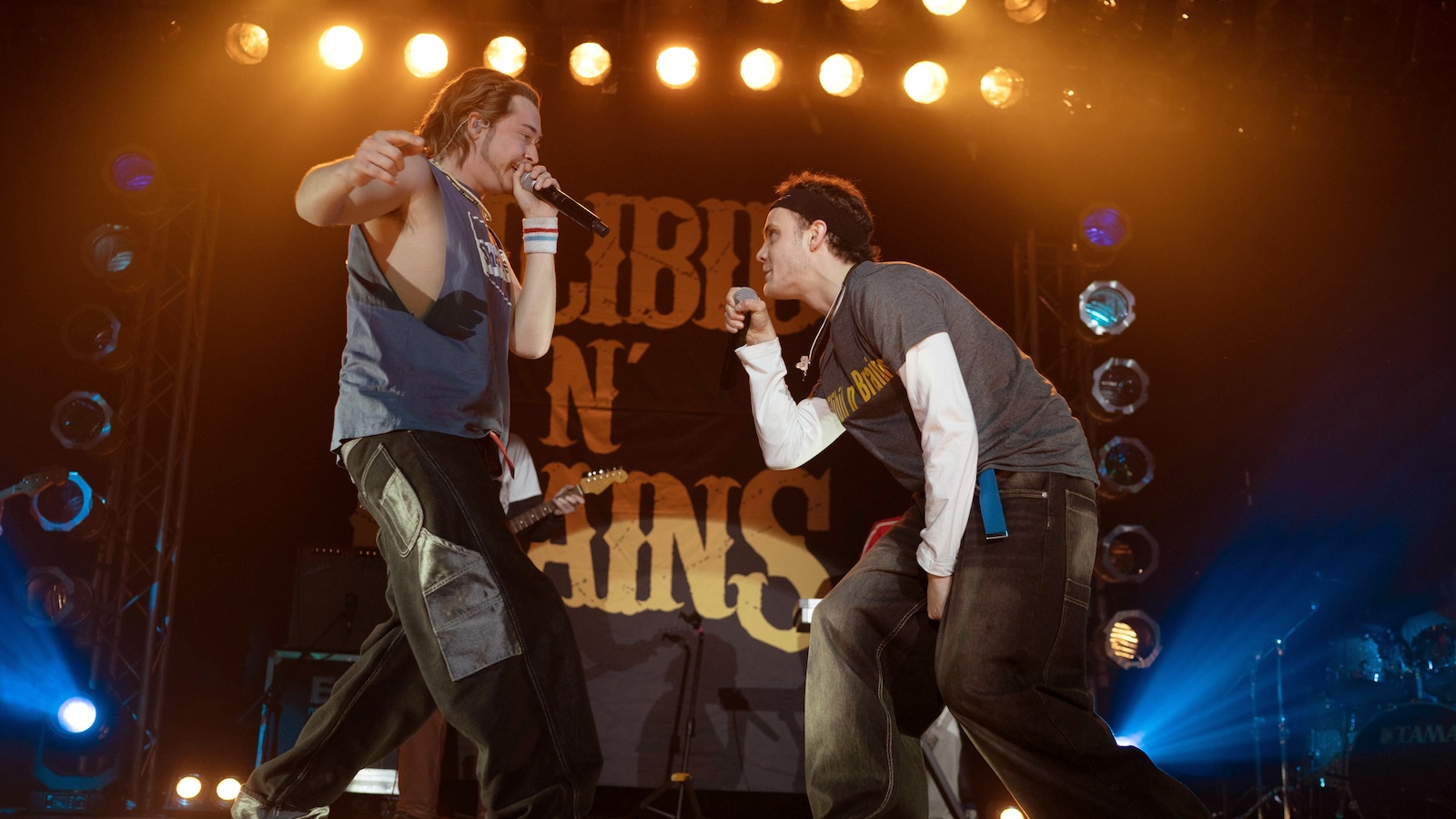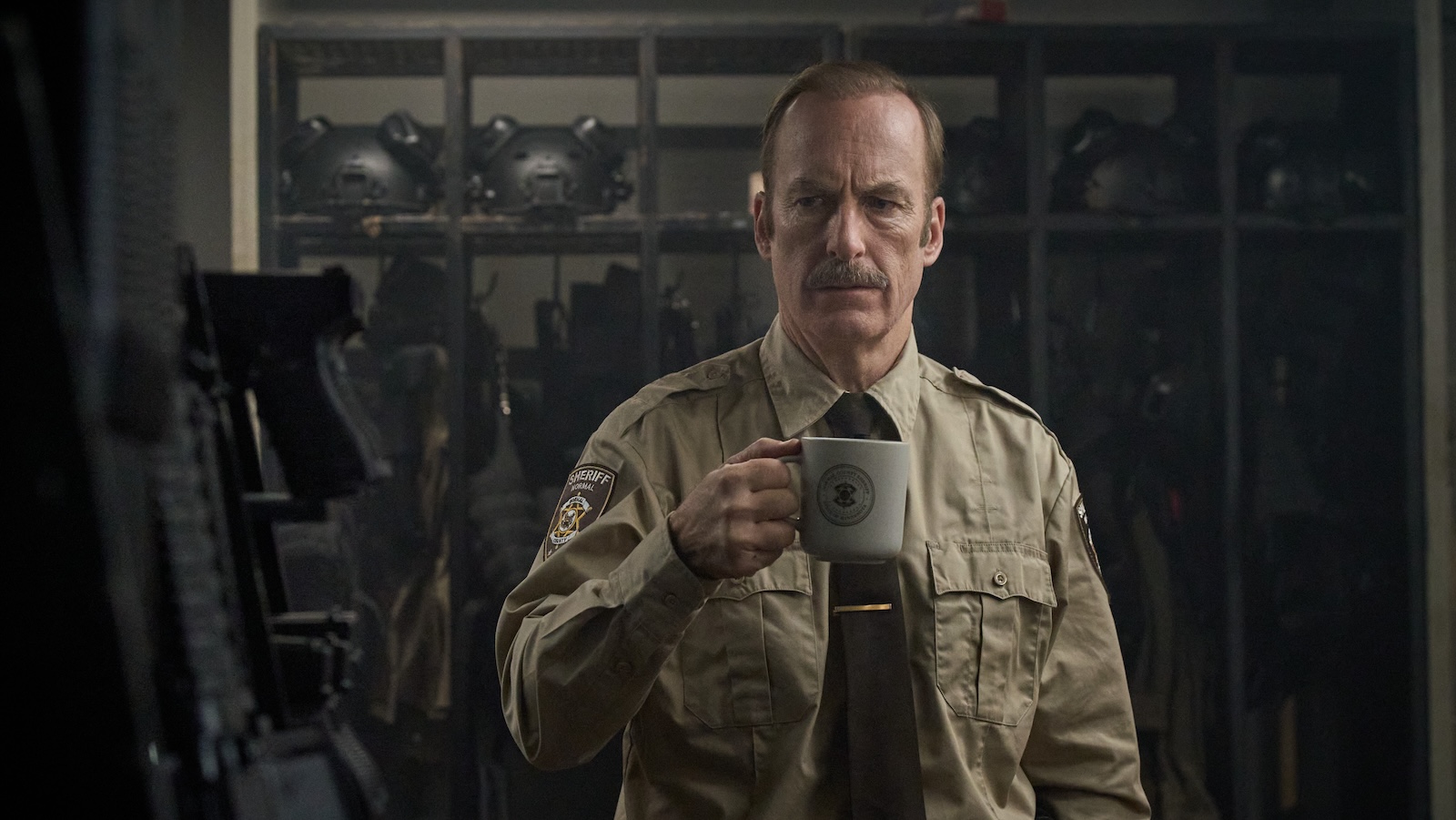Over the Labor Day weekend, “Hamnet” (November 27, Focus) turned the Werner Herzog Theatre at Telluride into a river of tears. And it did the same thing, by all accounts, at Toronto’s 2,600-seat Roy Thomson Hall on Sunday night. (Toronto often waits until after the opening weekend to show Telluride titles. Not this time.)
Anyone who has seen “Nomadland,” which earned Best Picture and Director Oscars for Chloé Zhao in 2021, knows that this director is skilled at eliciting emotion, from her actors and her audiences. “I don’t think I’ve screened any of my films in a theater that big before,” she told IndieWire the next morning on Zoom. “It’s huge, and because it’s three floors and it’s round, it’s actually like the Globe Theatre.”
That’s Shakespeare’s Globe Theatre, which Zhao had rebuilt at about 70-percent scale for “Hamnet,” a heart-wrenching period family drama based on Maggie O’Farrell’s 2020 bestseller about William and Agnes Shakespeare (Paul Mescal and Jessie Buckley). The well-reviewed film tracks their early romance and marriage and the birth of three children, two girls and a boy, Hamnet. Their lives are rocked by grief when they lose Hamnet to the plague, and Shakespeare buries himself in writing the tragedy “Hamlet.”
When Sam Mendes pulled back from developing “Hamnet” in 2022, Amblin Entertainment called Zhao to check out her interest in directing. She was driving through New Mexico’s Four Corners on her way to Telluride. She had never read the book, and at first said “no.” A few hours later, she got a call that Paul Mescal wanted to meet her at the festival. She did not know his work (he had done “Normal People,” and “Aftersun” was a secret screening at the festival). “I had no idea who he was,” she said. “I googled him. I see pictures of him, and I saw a clip. ‘I like his vibe. Why don’t I just meet with him?’”
During their walk in the woods, they stopped by a creek. Zhao looked at his profile. “Have you thought about playing young Shakespeare?” she said. “‘Hamnet’?” he said. “I read the book. You have to read the book.”
“It was exciting to meet him,” she said, “because it was not that different than meeting my rodeo cowboy for ‘The Rider,’ because I didn’t know him as an actor or what he does, I just felt like this person could potentially do this.”
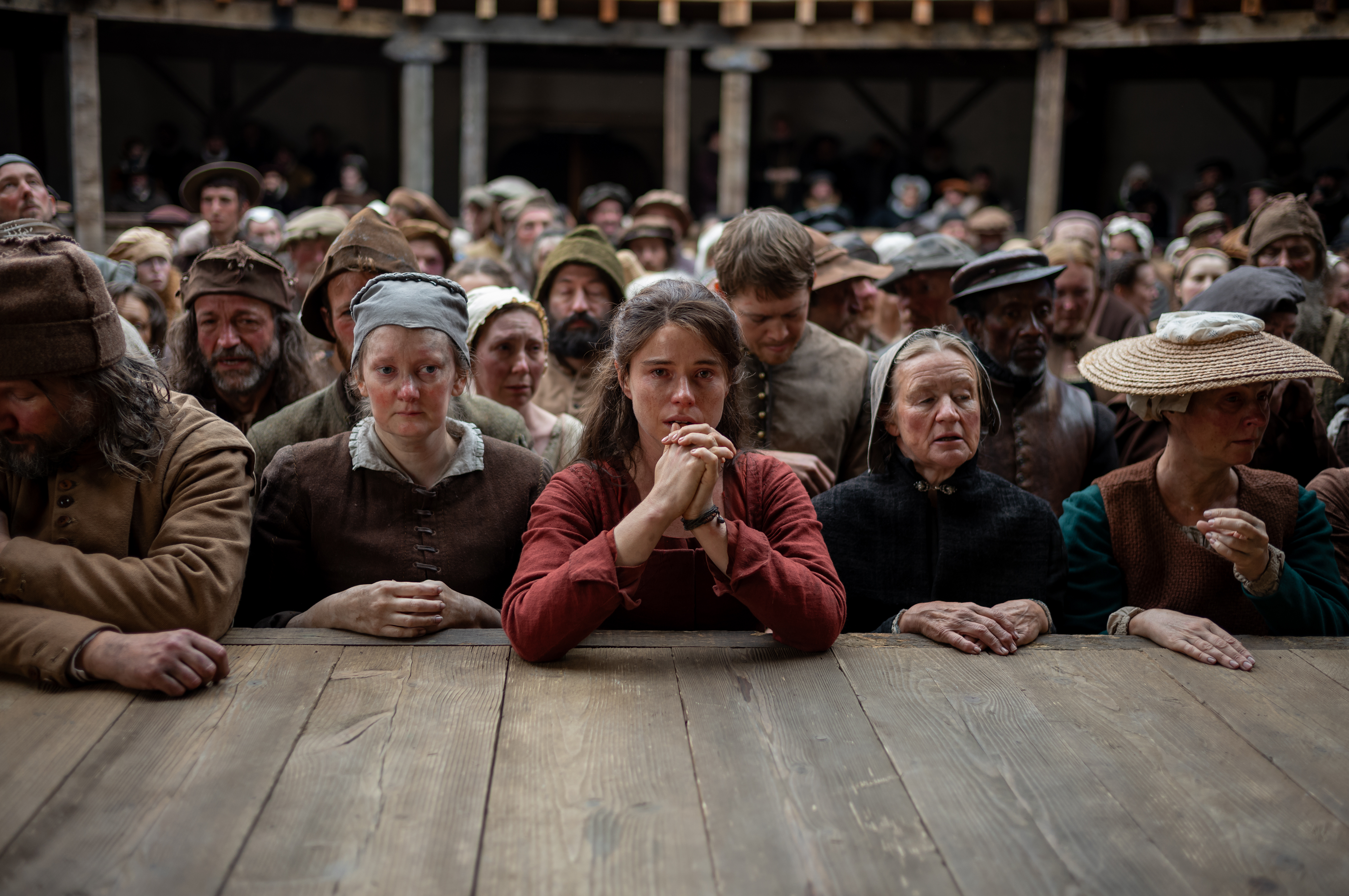
Then she read the book. “If I had read the book, I wouldn’t have said, ‘no,’” she said. “I had never heard of the book.” And she wanted Jessie Buckley to play Agnes. “I knew her work. I had a feeling that she wouldn’t be afraid. There was no vanity in her, which is what Fran McDormand had. I’m neurodivergent, and when there’s dissonance, I can’t function. I can’t look at the person. So I need that authenticity, and vanity is the number-one enemy of authenticity. Actors, their greatest blessing they can give to the world is their authenticity and their humanness.”
Making people cry is not Zhao’s goal, per se. “I never quite know what I’m doing when I set out to do something, and why,” she said, “because I never quite know what is real or what is true. Literal truth doesn’t make sense to me. When something is completely present in the moment with no dissonance at all, that’s when I say, ‘capture that right away,’ because that is truth that can transcend time and space, and that can link everyone together. Every day on set, that’s what we go for. Of course, we have a blueprint of a script based on a beautiful book. That’s the bones, the spine.”
Early in Zhao’s career, her films were reality-based. They tried to capture something in the real world. And then she directed Marvel’s “Eternals,” which is the opposite. While she got her worst reviews for that film, it did teach her many skills, including how to build a world. 16th-century “Hamnet” needed to be created, built from the ground up. It doesn’t exist except in the pages of O’Farrell’s book. That’s one reason why Zhao turned to O’Farrell to write the screenplay with her.
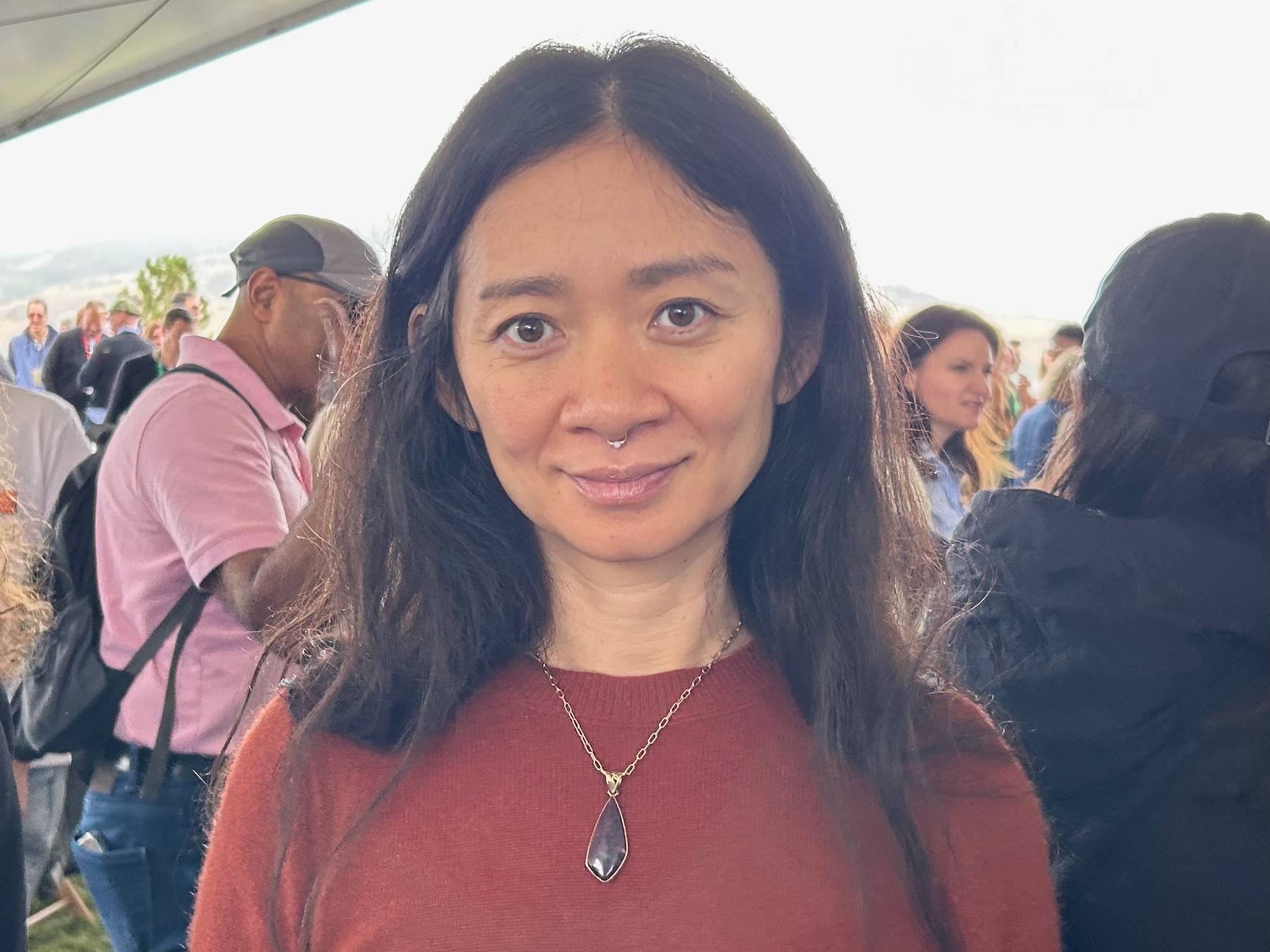
If O’Farrell had refused to write the “Hamnet” script with her, Zhao wouldn’t have made the movie, because she had built a world in the book. “Not only that, she had also been swimming in that pond for so long that she knows what she didn’t put in the book,” said Zhao. “To have that book, she must have written 10 of those to distill to that in her research. I needed to know what else isn’t in the book, because things will change. We add scenes. And so without her, I couldn’t have done that.”
O’Farrell did a first pass and arranged everything in chronological order. Zhao did another pass to condense it, pick the things to keep and throw away. And with that spine, they add and subtract “until we both go, ‘OK, this is it,’” Zhao said.
It helped to have Steven Spielberg on hand to give notes on the script and the edit. After he read the first drafts, he told Zhao, “I’m missing a moment between Will and Hamnet, between father and son.” So she wrote the “will you be brave?” scene. “He helped,” she said.
As far as Zhao is concerned, she and O’Farrell and the cast and crew contributed to the film every day, from Oscar-winning sound designer Johnnie Burn (“The Zone of Interest”) and ASC-winning cinematographer Łukasz Żal (“Cold War”) to co-editor Affonso Gonçalves and composer Max Richter.
“The emotionality of the film was the emotional truth of what we captured as a village,” she said. “We don’t know how to do it any other way. We were swimming the river together. So this is what we ended up with. And I have a faith that I hold on to — I’m not a traditionally religious person — but this faith I have as an artist is that if we do the work and we have conviction and we show up every day, something much bigger and older is going to try to speak through us. And whatever that is, is what the world needs. I just want to trust that. Otherwise, I’m lost.”
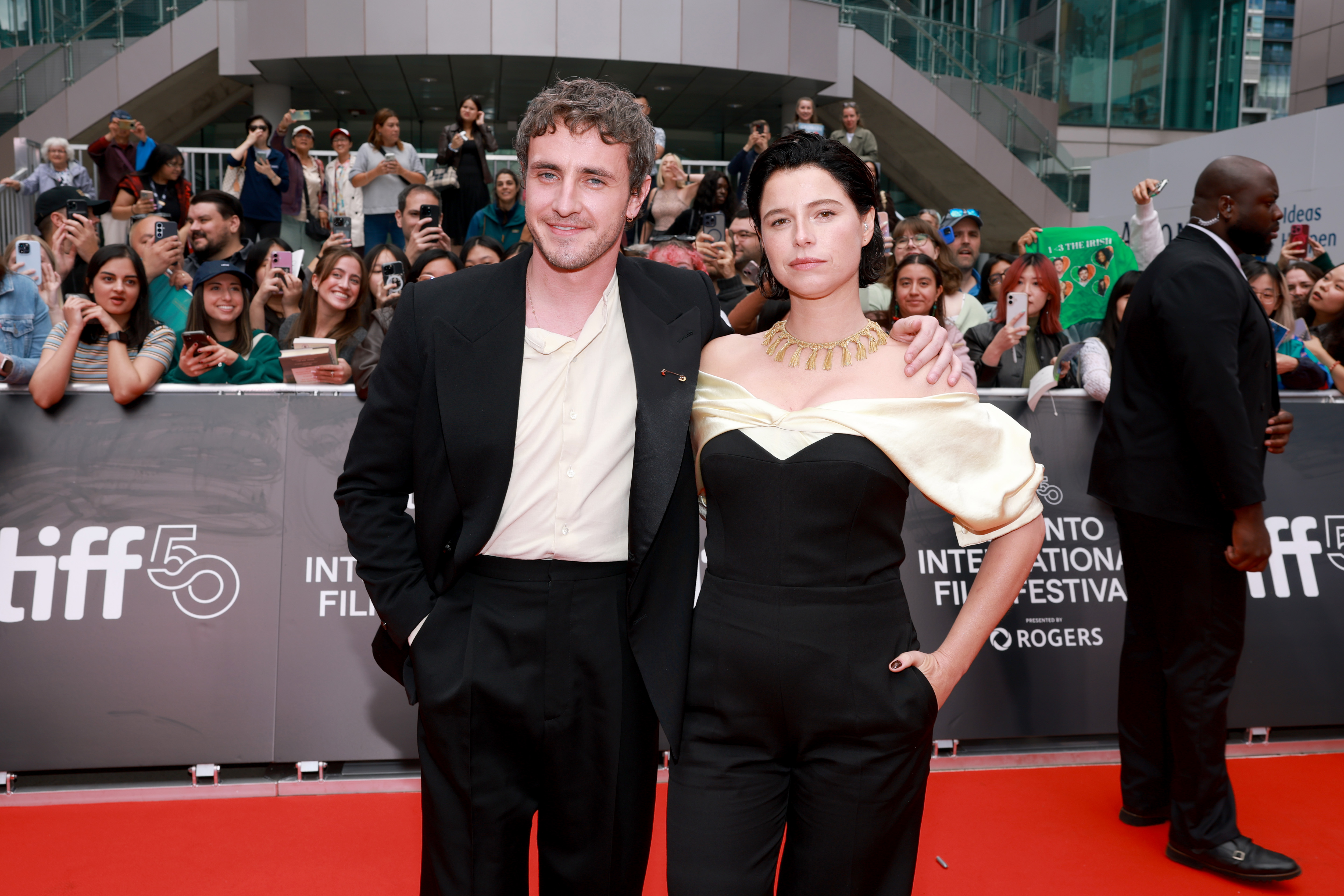
“Hamnet” had to be filmed on a smaller scale than her Marvel movie “Eternals.” “There isn’t another sunset that I could capture more dramatically than ‘Eternals,’” said Zhao. “Capturing sunsets in ancient places, with 500 people waiting and superhero-like, I’ve done enough sunsets now. In my 30s, I was chasing the horizons like a nomadic person, because for me it was easier to keep running. It’s difficult for me to sit with myself. ‘Hamnet’ needed depth, maturity. I challenged myself: one frame, one room, one stage. You’re not going to rely on that grandeur and that excitement of movement. How deep can you go? Because once you restrain yourself with these walls, the only place you could go is above or below, and that is extremely uncomfortable.”
The day when everyone on set went deep was the death of Hamnet. The night before, Jacobi Jupe came to Zhao and said, “I’m going to break your heart tomorrow.” She said, “Good! I have high expectations.”
When the day came, “I did not know Jessie was going to scream,” said Zhao. “I didn’t know that. I didn’t know what Jacobi was going to do. I had no idea what the two of them were going to do. We create an environment. By then, we’ve been together for a couple of months, cast crew, everyone knew what today is, it was like a ceremony. It wasn’t doing a scene. The pin could drop. Everyone in that moment was feeling something from the beginning of the day, something they loved they’d lost. So Jessie and Jacobi were channeling what all the people that are their found family in this last few months are feeling as well, and so the truth we capture in the moment is the only thing that we need to stand by. And in the edit, I have to make sure to not betray that, to not be afraid what that might do to the film in public.”
One of the reasons that Zhao initially shied away from the book was to avoid dealing with a mother figure. “When you have a deep mother wound, from your own personal life or ancestrally, telling a story about motherhood is triggering,” she said. “That’s why, if you look at my films in the past, that character doesn’t exist. She’s either not present or dead. So when I heard about the synopsis, I said I was not anywhere near doing it. I was also in the middle of going through midlife transition, [I was] turning 40-41, around that time. ‘If I don’t heal that wound, the second half of life is going to be hard.’ So I was reading the book, seeing how Agnes is losing her mother, losing her connection with nature, her connection with her child. There’s so much there. ‘How am I going to hold that? I can’t do this!’”
But then Zhao saw something that she could grasp, “a safe place,” she said, “which is actually the William Shakespeare side of the story, because I was writing from myself, too. I escaped into the fantasy world because I didn’t want to sit around the dinner table. It was not safe. So I know that character, that’s my safe place for 41 years. If I can escape to him half the time, I can maybe handle her, and then to allow these two sides of myself who had been at war and caused a lot of suffering to finally see each other. At the end, I went on an incredible healing journey making this film.”

Crying together goes back to the Greeks. “In every indigenous tradition, you come around the fire, and then the shaman would channel a story,” said Zhao, who used daily meditations and dream sessions with her actors, and arranged weekly dance rituals to let off steam.
“Animals, dreams, visions. People have strong emotions. Warriors come back from battle. They don’t just take medication. They can go back home. They sit around the fire, and they dance, and they release these emotions, and that turned into theater, these Greek tragedies. You get together, everyone gets angry together, and then they rage, and then they cry. And we have been dealing with this impossible tension to be alive. We so far have not been able to escape the law of nature. We’re going to be born, we’re going to die. And we have been using art and storytelling and a collective communal experience, to grieve, to feel, to deal with that since way before any of these things that are telling us we should be separated even existed. We’re remembering, ready to survive.”
At the end of the movie, the grieving Agnes, feeling bereft of her child and her husband, and away writing and mounting “Hamlet,” comes to the Globe Theatre to see the premiere performance. She stands at the edge of the stage with hundreds of extras behind her. [Spoiler Alert.] She is riveted as the actor playing Prince Hamlet (Noah Jupe) is onstage with her husband, Will, playing the ghost of his father, King Hamlet.
“It was four of the most difficult, but also life-changing days of my life,” said Zhao. “There’s barely any dialogue. This language is quite universal for everyone, right? Sometimes our truth can only be felt in silence and maybe with Max Richter’s music playing in the background. All we’re asking is to see each other and be seen without judgment, unconditionally, and that was healing and also difficult to experience. Shakespeare worked hard his entire life to bring people together every day for a few hours: The illusion of separation dissolves.”
She added after the TIFF premiere, “And that’s how I felt yesterday at the theater. Just for that short amount of time, you go to these events, you hold each other’s grief and anger and fear and shame in that short amount of time.”

